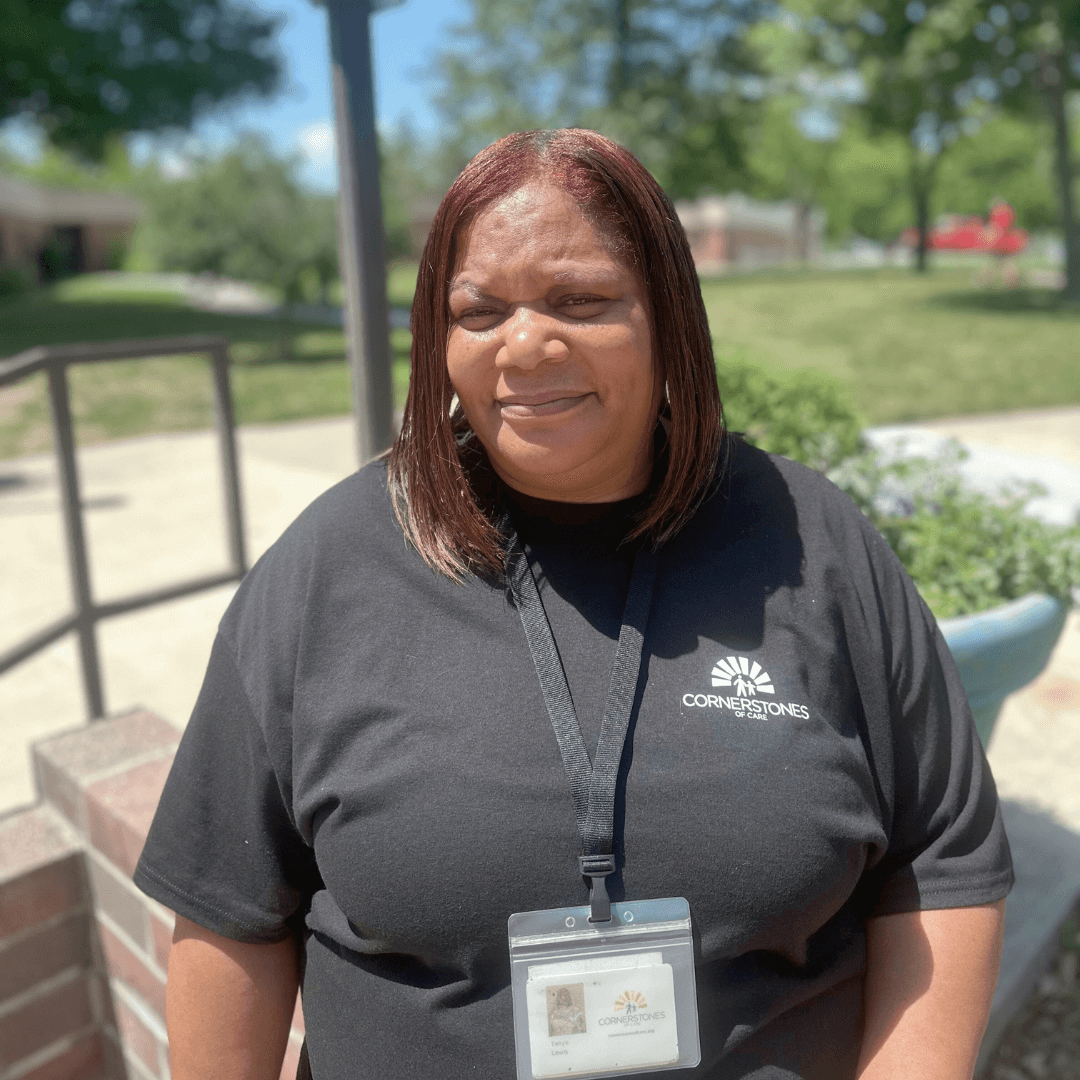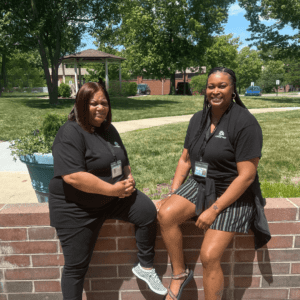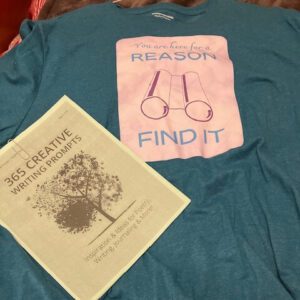Case Management Specialist Puts the Focus on the Family to Create Lasting Change

12 August 2024
When Tanya Lewis, Aftercare Case Management Specialist, first met *Ember, she knew that earning her trust and addressing her heightened risk of suicidality and self-harm would require a creative approach. To break the ice, Tanya pulled out a book of writing prompts and invited Ember to choose one.
“Not only did she answer it, but I did, too,” said Tanya. “It wasn’t me interrogating her, but instead walking alongside her. I had to improvise all the time to try and motivate her to live – that was my whole mission.”
Ember arrived at Cornerstones of Care after transitioning from a residential treatment facility in another state, following her family’s move to Kansas City. She struggled to sleep, couldn’t attend school due to safety concerns, and was tortured by persistent, destructive thoughts of self-harm. Her situation was compounded by several hospital stays, adding to her trauma.
“She felt hopeless,” Tanya recalled. “She didn’t trust a lot of people and seemed to only feel comfortable with and confide in me.”
This relationship became a lifeline for Ember, who often reached out to Tanya when she couldn’t sleep or was overwhelmed by thoughts of self-harm. Tanya also supported Ember’s younger brother for a short time.
“She was aggressive inward to herself, and he was aggressive outward,” said Tanya. Both siblings were adopted at a young age and experienced significant challenges. Ember was especially triggered by her brother’s behaviors which were often directed at their mother. “The parents were struggling with that dynamic for years, and were always looking for support from the community, but never found the right fit.”
In March 2022, Ember joined the Family Focus program, a no-cost initiative that combines short-term, residential treatment with in-home support services, designed to help families address their most urgent issues, rebuild relationships, and remain safely together.
Following the prescribed three months in residential, youth in Family Focus receive up to six months of aftercare at home, with continued access to on-campus services like substance use counseling, group therapy, and more. To aid in this transition, case managers like Tanya must strike a delicate balance between providing directive support and encouraging families to take charge and develop the skills needed to create lasting change.
“I tell parents that I can’t be in front of you,” said Tanya. “I’m going to be gone in six months. You have to learn how to navigate this because this is your kid.”
Fortunately, Tanya had a strong partnership with Ember’s mom, who educated herself and worked hard to help her kids through their challenges.
As Ember’s self-harming incidents began to stabilize, she was able to go back to school. Though new concerns popped up during this transition, the team celebrated each small milestone – counting first the days, then the weeks, and eventually months without self-harm incidents.
Milestones came in many forms. Ember started making friends and went to a friend’s house to hang out. She got a part-time job. One day, she won an art contest by writing an original poem and putting it on the back of a t-shirt.
“I got to have one of those shirts,” said Tanya proudly.
But the most telltale sign of Ember’s healing and growth was something much smaller, yet equally significant.
“She’s not calling me anymore,” said Tanya. “This is how I know she’s better. She’s riding the bike now; the training wheels are off.”
In the final two months of the program, Tanya begins “winding down” with families, visiting them less often and ensuring that they have access to the services they need to maintain progress in the future. Once aftercare ends, any calls that come are initiated by the family and are usually just to say “Merry Christmas” or share a special announcement.
The finality of this type of work is bittersweet but is often a sign that the family has found stable support elsewhere and is no longer in crisis. For Tanya, the relationships are real and connected to a personal passion for paying it forward and helping kids and families heal from their trauma.
“I’ve been there and struggled with a lot of things, and I understand that hopelessness and helplessness,” said Tanya. “I don’t want people living in that feeling.”
“Tanya is a leader in many ways,” said Stephanie. “What I admire about her most is that she’s passionate and determined to help her families. Her life is truly dedicated to helping others, and it shows in her work. If she doesn’t understand something – a diagnosis or age group – she puts in the work to educate herself. I admire her ability to better herself for the families we serve. I don’t know what I’d do without her.”
Tanya is also a parent and will welcome her first grandchild to the world in August, adding to the poignancy of her work and underscoring the importance of investing in the next generation of kids, no matter their situation.
“When I’m old, the youth will be running this town, so I need to make sure they’re equipped to the best of my ability,” said Tanya. “And I understand that it starts early.”
*Name changed to protect privacy
Visit the Family Focus page to learn more about the program or make a referral.
If you are in search of essential human services resources, dial 211 to connect with Community Resource Navigators through the United Way. Dial 988 to reach the suicide crisis hotline.



